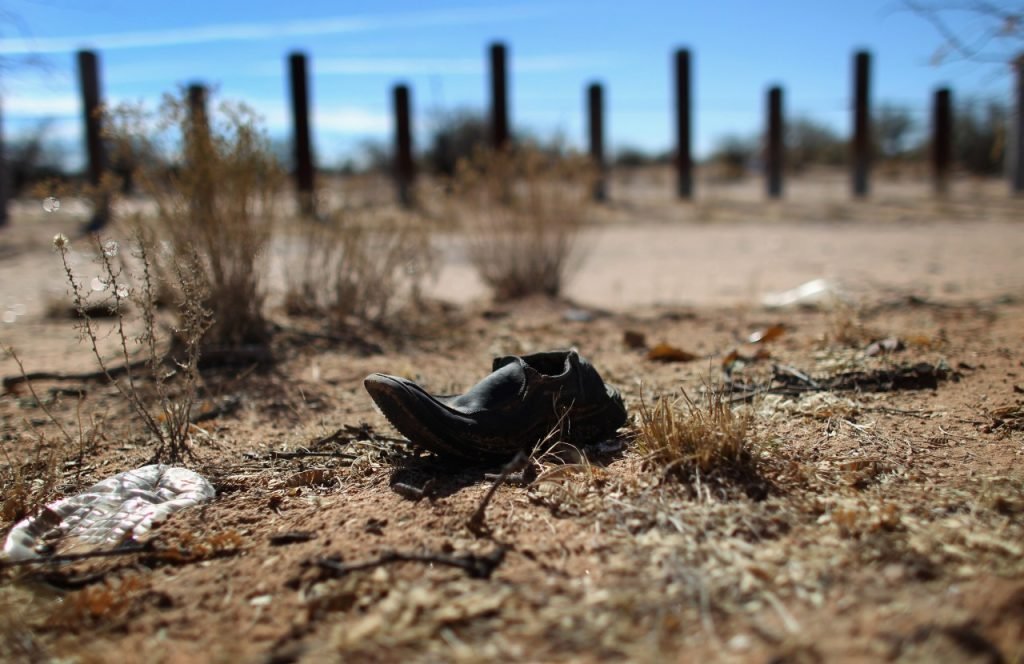(new nation) — The four years since Rogelio Madera Cervantes went missing after leaving Jalisco, Mexico, until his remains were identified were a “nightmare” for his family.
After he went missing, his family searched for him along the U.S.-Mexico border and searched jails and morgues in Tijuana, Arizona and Nogales, but to no avail.
Somewhere on his cross-border journey, he separated from the group he was traveling with and died in the desert near Yuma, Arizona.
“Losing someone who died on the U.S.-Mexico border is one thing…it’s a traumatic experience,” said Jason De Leon, Executive Director Colibri Human Rights Center, a non-profit organization based in Tuscon, Arizona. “But I think it’s ten times worse not knowing what happened to someone you love. Not knowing if they’re alive or dead.”
When his body was found in the desert about three years later, the Colibri Center helped confirm his family’s identity through DNA testing.
Work at the Colibri Center began in 2006, and by 2017, they began compiling collected DNA samples into a database. This database can be used for comparison with another database of unidentified bodies collected and maintained by the Pima County Coroner’s Office.
Workers sometimes collect their own DNA and travel internationally to places like Honduras to find families willing to provide comparison samples.
This process can take years.
Cervantes’ family lost contact with him after he departed in July 2013 in Arizona with “Coyote” (another name for human smugglers).
Meira Ibarra, who is married to Cervantes’ nephew, later learned that Cervantes had fallen ill during the trip and could not keep up with the group.
“[The coyote]said he left himself on a[Native American]reservation or community in Yuma, Arizona,” Ibarra said.
Then, in 2015, Ibarra learned about the Colibri Human Rights Center in a Univision news report. Ibarra said she got in touch with a “gentle girl” and it quickly eased some of her fears.
“My heart told me they would help us,” Ibarra said. “It was a long process, but we were in constant contact.”
Colibrí’s services are free to families of missing persons, but there is a cost to donations and public-funded nonprofits.
There was pain and sadness when Cervantes’ sister received the call confirming the DNA match, but it was tempered by the relief of closure.
The family was relieved to see him back after so long. For years, “they wanted to find him, dead or alive,” Ibarra said.
The end of the case is bittersweet, but De León considers it a victory. Colibrí has identified a total of 261 previously unknown family members.
But it’s a difficult process, and these 200+ cases represent only about 6% of all missing person reports the center receives. The report spans 14 countries and her 43 states in the United States.
Considering that the Pima County Coroner’s Office has approximately 1,192 unidentified remains, this could be a serious statistic.
But De Leon knows the family behind these numbers and is driven by their story.
“No one else is doing this,” De Leon said. “When you close the door, there is no phone number to call and no one to manage the case.”
Each country’s consulate is responsible for arranging the repatriation of deceased migrants, and the details of these practices vary.
For the families of people who have died across borders, DNA is often the most promising tool for identification. Desert conditions can be brutal and rapidly degrade ruins, but it can be a deterrent to those willing to venture through miles of hot and oppressive climate.
“The whole Sonoran Desert is just a giant cemetery,” De Leon said.
The U.S. Customs and Border Protection (CBP) has installed rescue beacons and placards to help migrants call for help and easily locate themselves.
“Smugglers are leaving migrants in remote and dangerous areas, leading to not only more relief efforts but tragic deaths,” said a CBP spokesperson. Stated.
Border Patrol recorded a record number of immigrant deaths in fiscal year 2021 — about 600. Border guards helped rescue about 13,000 people.
For those that don’t work out, CBP has several measures in place, including: Missing immigration programwhich also works to match DNA.
but the recent Review by the Government Accountability Office It found border patrol reports of migrant deaths to be inconsistent and recommended better coordination with external agencies. According to the report, CBP has agreed to these recommendations and has already begun.
Colibri Center’s work is made possible through a partnership with the Pima County Coroner’s Office. But that level of cooperation isn’t guaranteed across the country, and isn’t common along borders, according to the nonprofit.
Colibri is accepting missing person reports in other locations, including Texas, California, New Mexico and Mexico.
“Today, more than 1,500 unidentified bodies have been found in Arizona,” De Leon said. “And that includes only those who have been found.”







